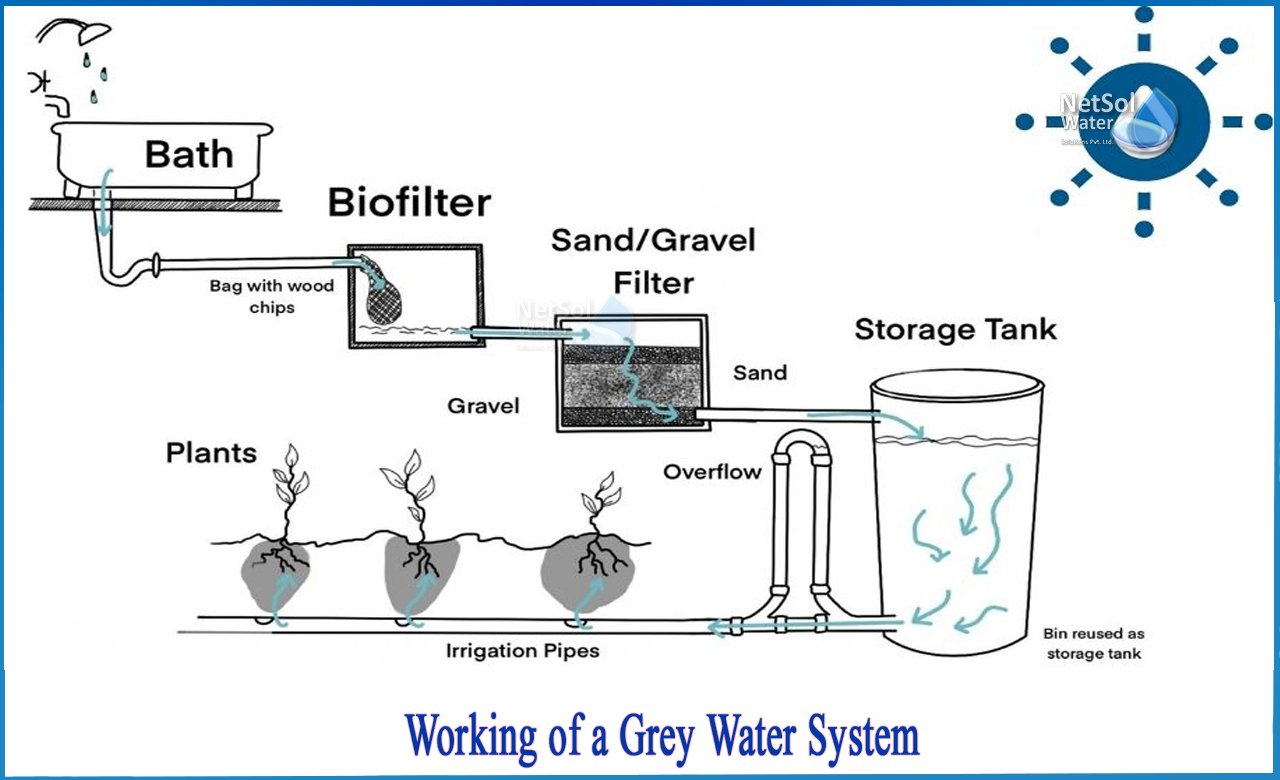What is grey water?
Greywater, also known as sullage, is domestic wastewater generated in homes or office buildings from faeces-free streams, i.e. all streams except toilet wastewater. Greywater is produced by sinks, showers, baths, washing machines, and dishwashers. Because it contains fewer pathogens than domestic wastewater, greywater is usually safer to handle and easier to treat and reuse onsite for toilet flushing, landscape or crop irrigation, and other non-potable uses. Pathogens from soiled clothing or cleaning the anal area in the shower or bath may still be present in greywater. Reusing wastewater is a critical component of long-term water resource management. Greywater can be an important alternative water source, particularly in arid and touristic areas where water demand is highest during the dry season.
Potential environmental benefits
The following are some of the potential environmental benefits of greywater recycling:
· Reduced extraction of freshwater from rivers and aquifers,
· Septic tanks and water treatment plants have a lower environmental impact.
· Reduced energy consumption and chemical pollution caused by water treatment.
· Recharge of groundwater and nutrient reclamation.
Quality of grey water
Greywater typically contains traces of human waste and is thus tainted with pathogens. The excreta are produced by washing the anal area in the bath and shower, as well as by doing laundry (washing underwear and diapers). Greywater's quality can deteriorate quickly during storage because it is frequently warm and contains nutrients, organic matter (e.g., dead skin cells), and pathogens. For the same reason, stored greywater causes odour problems.
How does grey water system works?
The water is filtered in the greywater system. Settlement of solids, separation of lighter solids, anaerobic and aerobic digestion, and disinfection with chemicals or UV light are all part of the process.
Greywater treatment systems treat water with the primary goal of protecting the health and safety of property users. These systems must meet the requirements of the Building Code. Greywater systems typically use treated water for irrigation or toilet flushing. Due to the general lower levels of contaminants, most greywater is easier to treat and recycle than sewage.
Domestic greywater can be recycled directly within the home, garden, or business if collected using a separate plumbing system from black water and used immediately or processed and stored. If it is stored, it must be used quickly or it will begin to putrefy due to the organic solids in the water. This type of recycled greywater is never safe to drink, but a variety of treatment steps can be used to provide water for washing or flushing toilets.
Greywater systems that process water for irrigation typically include a surge tank and a discharge channel into an irrigation system. A water treatment system is required in greywater systems that process water for toilet flushing. The water is stored in the greywater recycling system's surge tank before processing begins. This tank is typically a container that can withstand the initial surge of water. The surge tank must meet certain requirements. It must be vented, have a trapped overflow, be sealed, and be vermin proof. Typically, the water from the surge tank is diverted using density or a pump.
For more information, contact Netsol Water.
Netsol Water is Greater Noida-based leading water & wastewater treatment plant manufacturer. We are industry's most demanding company based on client review and work quality. We are known as best commercial RO plant manufacturers, industrial RO plant manufacturer, sewage treatment plant manufacturer, Water Softener Plant Manufacturers and effluent treatment plant manufacturers. Apart from this 24x7 customer support is our USP. Call on +91-9650608473, or write us at enquiry@netsolwater.com for any support, inquiry or product-purchase related query.



